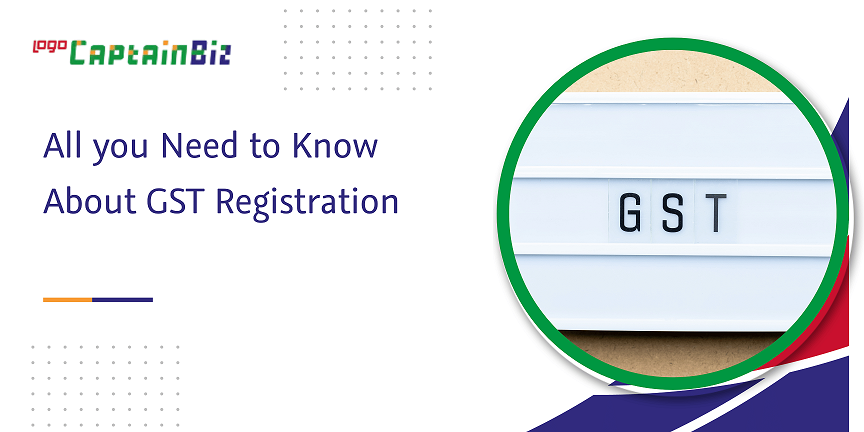Stay Clear Of Usual Errors in Singapore GST Registration for Your Service
Stay Clear Of Usual Errors in Singapore GST Registration for Your Service
Blog Article
The Ultimate Overview to Streamlining the GST Registration Refine and Needs for Local Business Owners

Understanding GST Essentials
To comprehend the fundamentals of the Product and Provider Tax Obligation (GST) system, tiny service owners have to initially comprehend its underlying ramifications and principles. Under the GST program, businesses are needed to gather and register tax on behalf of the federal government, making certain transparency and conformity.
Among the key principles of GST is input tax obligation credit history, which permits businesses to claim credit rating for taxes paid on their purchases. This device protects against the cascading impact of tax obligations and promotes efficiency in the tax obligation system. Furthermore, GST is a destination-based tax, meaning that the tax is imposed at the point of intake instead of the factor of beginning. This makes sure fair distribution of tax revenue among states based on where the products or solutions are consumed. Understanding these standard principles is crucial for small organization proprietors to browse the complexities of the GST system and guarantee compliance with the regulation.
Qualification Standards for Registration
Having actually developed a fundamental understanding of GST principles, local business owners should now fulfill certain eligibility requirements to continue with the registration process. In India, entities involved in the supply of products or services with a yearly accumulation turnover exceeding Rs. 40 lakhs (Rs. 10 lakhs for unique classification states) are needed to register for GST. Additionally, specific companies such as those involved in inter-state supply of products, laid-back taxed persons, and those required to pay tax obligation under the reverse cost mechanism should register for GST irrespective of their turnover. Additionally, companies that were signed up under the previous tax obligation regime (BARREL, service tax obligation, etc) are likewise mandated to sign up under GST. Nonetheless, agricultural organizations that just provide generate out of primary production are exempt from GST enrollment. It is crucial for entrepreneur to meticulously assess their qualification based upon these requirements to make certain compliance with the law and avoid any type of fines for non-compliance.
Records Required for GST Registration

Simplified Enrollment Refine Steps
Following the collection and confirmation of the requisite documents, the registration procedure for GST can be navigated via a collection of simplified steps made to promote efficient compliance for tiny service owners. article Upon effective verification, an Application Recommendation Number (ARN) is issued, showing the completion of the GST registration procedure. By adhering to these simplified actions, small company proprietors can efficiently sign up for GST and Discover More Here make sure conformity with tax obligation guidelines.
Tips for Ensuring Conformity
To keep regulatory adherence and functional stability, attentive oversight and aggressive procedures are pivotal in making sure compliance with GST demands for tiny organization owners. Small company proprietors need to remain updated with GST policies, filing due dates, and any changes in tax rates to prevent charges and preserve a great standing with tax authorities. Participating in GST awareness workshops or training programs can enhance understanding and conformity with GST laws, inevitably benefiting the business in the long run.
Conclusion
Finally, small company owners have to recognize the essentials of GST, satisfy the eligibility criteria, collect needed papers, and comply with the simplified enrollment procedure steps to ensure conformity. By streamlining the GST registration process and requirements, small company owners can avoid fines and run their services smoothly within the lawful structure - Singapore GST Registration. It is critical for small company proprietors to remain informed and certified with GST laws to preserve a successful organization operation
Tiny service proprietors seeking GST enrollment must guarantee they collect and send the essential records to complete the enrollment procedure effectively. The documents needed for GST registration typically consist of proof of service registration or consolidation, PAN (Long-term Account Number) card of the business address, entity and identity proof of the promoters/partners/directors, pictures, address proof of the location of organization, bank account declarations or terminated cheques, and authorization types. Attending GST understanding workshops or training programs can boost understanding and compliance with GST policies, inevitably benefiting the company in the lengthy run.
By simplifying the GST registration procedure and visit here needs, small company proprietors can stay clear of penalties and run their organizations smoothly within the legal framework. It is critical for small company proprietors to remain compliant and educated with GST guidelines to keep an effective business procedure.
Report this page